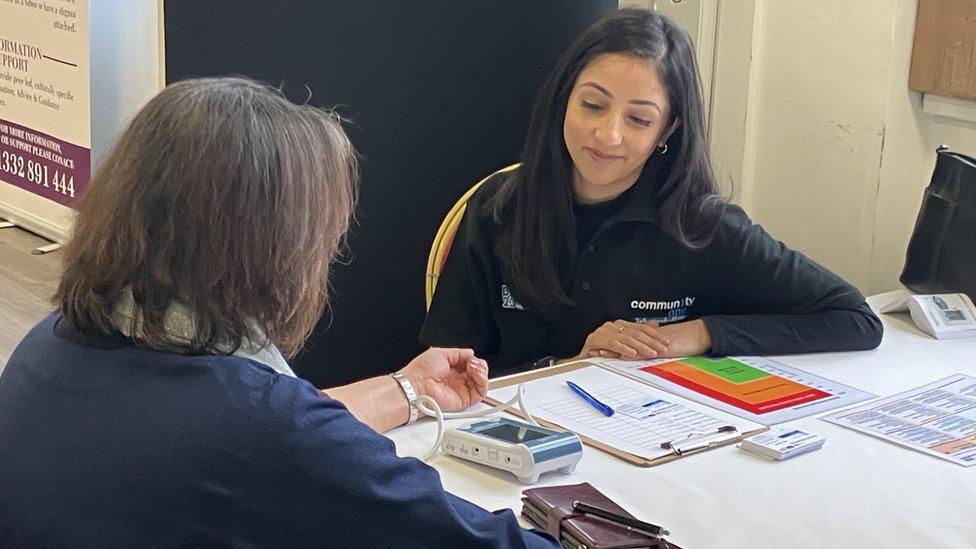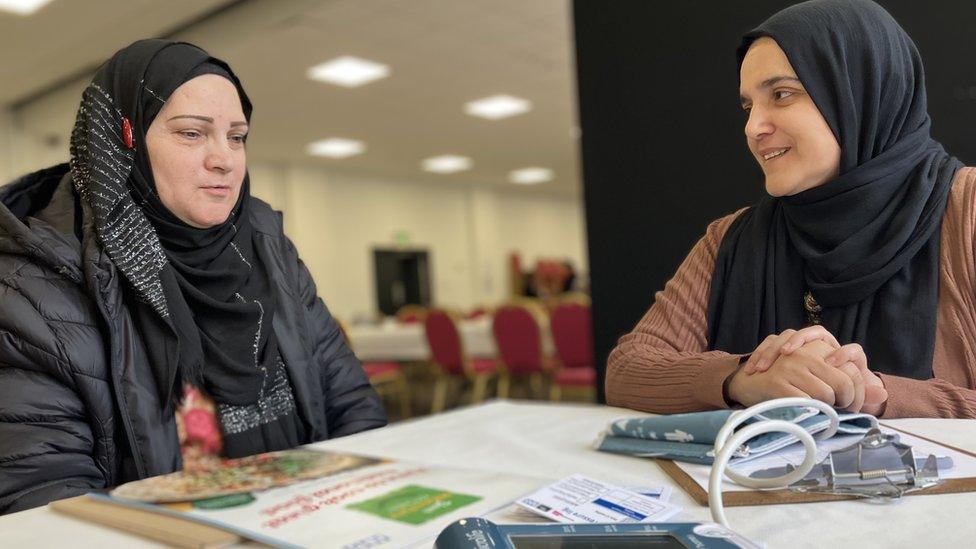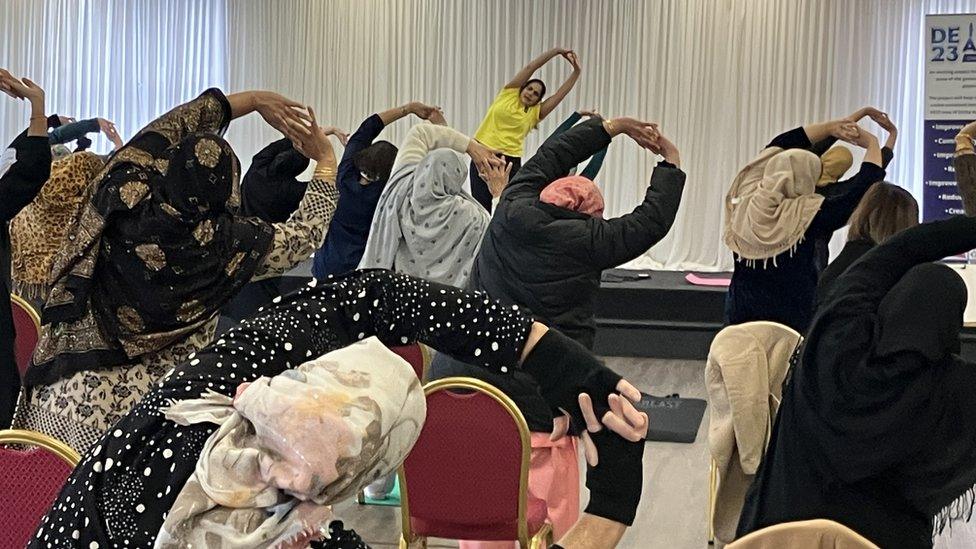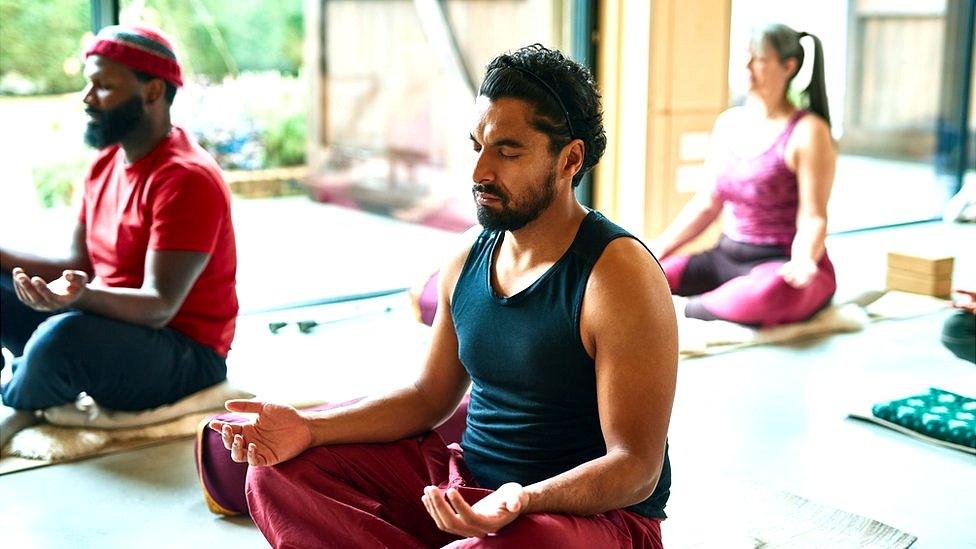NHS urges people in Derbyshire to tackle 'silent killer' condition
- Published

High blood pressure could be a sign of a "silent killer", the NHS says
More than 30,000 people are living their lives across Derbyshire unaware they have a "silent killer" condition.
Now a legion of volunteers has been tasked with finding those at risk and making sure they make changes now to avoid strokes, heart attacks or worse.
It is part of a huge drive across Derbyshire to make people, particularly people over 40, aware of the "ticking time bomb" of high blood pressure.
NHS research shows people in the Asian and Black communities are most at risk.
In Derby, the NHS estimates more than 9,500 people have undiagnosed high blood pressure, while in Derbyshire, it is estimated by the health service more than 22,000 cases are not diagnosed.
An advertising campaign is under way across the city, with adverts in the Derbion, in papers and on radio urging people to "know their numbers" by taking a simple blood pressure test, which can be requested at most pharmacies.
Some 55 volunteers have also been trained and provided with blood pressure monitors so they can do the checks in the places people already visit regularly, such as at community events.
Communities supported through the project include people from the South Asian population, Black Caribbean and African, Bosnian and Chinese populations, and the deaf and blind communities.
People whose readings are high are offered advice and support to reduce their risk of the potentially-devastating consequences of cardiovascular disease.
High blood pressure has been reported in almost 70% of stroke patients and it causes half of all heart attacks, but it has no noticeable symptoms - leading it to be called "the silent killer".
But lifestyle changes and medication can significantly lower the risks.

Shereen Mumtaz has been making changes after a volunteer like Masarat Begum found high blood pressure
Ailya Habib, of Community Action Derby, has led work to recruit and train volunteers in the city's diverse communities.
She said: "People from minority communities often have worse health or are at greater risk of illness, yet they also often find it harder to access healthcare and advice.
"Knowing you have high blood pressure could save your life because you can then take medical advice and make lifestyle changes to reduce that risk."
One place where tests are offered regularly is the Pakistan Community Centre in Pear Tree.
Women and men meet on separate days to take part in exercise classes, to hear talks from experts on looking after their health and to have a healthy cooked lunch.
One of those at Pear Tree now making changes is Shereen Mumtaz, 62.
She said: "I'm walking a lot more, drinking lots of water, and have cut down on salt."
Volunteer Masarat Begum, from the centre, said: "We have a lot of ladies who have changed their lifestyle.
"Some have lost weight, some are exercising more."

Getting active can make a big difference to the risks
Nosheen Ali is another of the volunteers there.
She said: "We are able to identify those struggling with high or low blood pressure, and we are able to refer them to their local GP or pharmacy to ensure they get checks done, and get the help they need."
Dr Chris Weiner, medical director of NHS Derby and Derbyshire, external, said: "Stroke, heart attacks and cardiovascular disease are among the biggest causes of death and illness in our communities.
"Working with local communities to monitor and manage their own health is vital to cutting the rates of early death and illness. It will also help to tackle the health inequalities we know exist."

Follow BBC East Midlands on Facebook, external, on X, external, or on Instagram, external. Send your story ideas to eastmidsnews@bbc.co.uk, external or via WhatsApp, external on 0808 100 221
Related topics
- Published15 September 2023

- Published1 February 2012